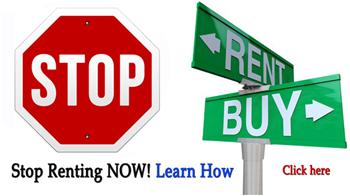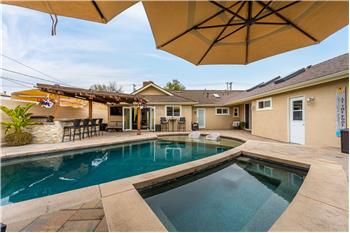Many new real estate investors want to buy foreclosure homes directly from the bank. The attraction to bank-owned properties is understandable, as you borrow money from the bank to purchase a home. It is natural to assume that the bank owns the home; however, whether through a Deed of Trust or Mortgage, the title to your home is either held by a third party or pledged as security for the loan. So, in fact, the bank does not actually own the foreclosure home at all.
You borrow money from and give mortgage to the bank. The mortgage is the security instrument utilized to protect the bank from loss should you default on the home loan. Unless you bought a bank foreclosure home directly from the bank, the bank has never owned the foreclosure home at all.
The Foreclosing Lender’s Profits
The goal of the foreclosing lender is to gain possession of the foreclosure home. The financial goal of the lender is the recovery of the principle loan balance, accrued interest, late fees, and penalties, taxes paid on behalf of the home owner, court costs and attorneys’ fees. In most states, the laws are written so that the mortgage lender can only attempt to recover these widely accepted standard losses.
The mortgage lender will add in every legitimate expense when foreclosing on a home. This is what is sued for: the total the mortgage lender claims is owed by the owner of the foreclosure home. In most states, this is the maximum amount the mortgage lender can collect. The laws are written this way to protect homeowners from unfair practices.
The commonly held notion is that a bank (or any other lender) must sell a foreclosure home for the same amount it cost in order to gain possession of the home and, therefore, cannot make a profit. This is false. If the foreclosing lender is the successful bidder on the foreclosure home at auction, it will take possession of the foreclosure home for the very first time. When this happens, all the rules change. The lender, now the legal owner of the foreclosure home, can do anything it wants with the home, including sell the foreclosure home for any amount it desires.
Condition of Title
When purchasing foreclosure homes, homebuyers are often concerned about the quality issued by the mortgage lender. A common belief is that there may be liens or judgments clouding the title of the foreclosure home. This is a myth. The mortgage lender will bid on a foreclosure home at auction only if it wants the home. The mortgage lender, typically the senior lien holder, wipes out all junior lien holders or judgments against the foreclosure home in the process.
If the foreclosing mortgage lender does not bid at the sheriff’s sale or auction, it probably doesn’t want the foreclosure home. This may be due to excessive superior liens, such as IRS or tax liens. (Tip: If the mortgage lender doesn’t bid for the foreclosure home at auction, you probably shouldn’t bid on the home either.)
The mortgage lender, in an effort to recoup its losses, will bid on the foreclosure home, wipe out lien holders, and then pay the balance of outstanding taxes on the foreclosure home to secure the home’s clear title. No mortgage lender will go through the time, effort and expense of foreclosing on a home only to lost the foreclosure home for a few thousand dollars in back taxes. Having absorbed these costs, the mortgage lender generally adds them to the asking price of the foreclosure home and will sell the home with a clear title. The lender does not have to sell the foreclosure home for what was paid at auction.
Another myth is that all banks are bending over backwards to give away foreclosure homes. Lenders want to sell their foreclosures. Lenders—banks in particular—are corporations. These corporations are driven to make money, not to lose it. A bank has to answer to its shareholders just like other corporations do and thus will not “give away” a foreclosure home.
The business of repossessing homes is not new. Over the years, many mortgage lenders have developed effective methods of selling their foreclosure homes quickly with minimal loss.
Property Disposition
Lender practices and procedures with regard to foreclosure homes vary greatly. Some lenders widely market their inventory of foreclosure homes, while others practically hide them. Some banks advertise foreclosure homes in daily newspapers, while others demand that you maintain an account with them—or better yet, become a stockholder—just to get their list of foreclosure homes.
Lenders are in the money business, not the real estate business. Thus, most foreclosure homes are marketed through recognized real estate brokers or real estate agencies. Some real estate agencies specialize in foreclosure homes and may represent several lenders’ homes.
Real estate brokers may have several real estate investors lined up, just waiting for a good foreclosure home to turn up. Real estate brokers can also assist the mortgage lender in determining market prices of foreclosure homes, suggesting marketing strategies, recommending appraisers or contractors with expertise in foreclosure homes, etc.
Some mortgage lenders establish a set price for a foreclosure home and will only allow the sales agent to consider offers for less. Many mortgage lenders dispose of their own foreclosure homes. Depending on the size and complexity of its foreclosure home inventory, the mortgage lender may have one part-time clerk working on foreclosure homes sales or an entire staff of special asset managers handling the sale of foreclosures.
Bank Foreclosure Investing Overview
Purchasing foreclosure homes directly from the bank is the most popular way to buy foreclosures. It’s fairly easy and less of a headache than other real estate investing methods because it involves less complications and risks.
Locate bank or government foreclosure homes in the newspapers or by researching them at the county courthouse. You can also contact a real estate agent or use a good listing service. Use HudIndex to locate foreclosure homes that meet your investing criteria, those that are in your area, price range, size and style. Determine whether you are buying a foreclosure home to resell or to secure a home for yourself. Decide if the foreclosure home is a bargain by deducting the lender’s asking price for the home from the average market price of very similar homes in the immediate area.
Your goal as a real estate investor is to realize a tidy profit. You can buy a foreclosure home at a 15-20% discount and earn a 35-40% return. As a homebuyer, you should buy a foreclosure home below market value with a low down payment, low interest rate and reduced closing costs.
Contact the mortgage lender or the real estate broker and meet him at the foreclosure home so you can inspect it. Record any damages to the foreclosure home and deduct the home repair estimates from your price. Use a good home inspection checklist.
Real estate investors must deduct all expenses associated with buying, repairing, borrowing, holding and closing on the foreclosure home again from the price they think they can get. Homebuyers should negotiate around the four discount factors: price, down payment, interest rate and closing costs. The bank, being a lender, can negotiate all these items.
If you still like the numbers and the foreclosure home, proceed with a written offer for the home containing the following:
· A statement indicating your intent to purchase the foreclosure home
· The physical address of the foreclosure home
· The legal description of the foreclosure home
· The price you are willing to pay for the foreclosure home
· Your down payment terms
· Your financing terms
· The date you desire to close on the home
· Any contingencies
· Your deposit information
· Your name, address and phone number
Depending on the foreclosure home and several other variables, you may want to buy a property at 15-25% below market value. Start your offers accordingly.
Unrealistic offers on foreclosure homes will be rejected quickly. Learn to work with the banks. You can negotiate around interest rates, price and down payment, just stay within reasonable boundaries if you want to succeed in purchasing a home.
Some mortgage lenders sell thousands of foreclosure homes every year. Many sell their foreclosure homes at or near market price. We know one lender who has sold almost 10,000 properties in the last three years, with average sales of 99% of market value.
Not all lenders behave the same way. Try to locate those that are more flexible in their property disposition policies. When the bank accepts your offer, close on the foreclosure home as quickly as possible. Avoid delays and complications from competitive offers.
Disadvantages of Buying a Bank Foreclosure Home
In the real estate industry, the rewards follow the risks. Therefore the payoff from this investing method is typically lower than that of buying pre-foreclosures or buying a foreclosure home at auction. An REO investor should have no problems achieving a 10-20% discount from the market value of comparable homes. Savings of 25-35% are harder to find. Savings of 40-60% are possible, but are getting rarer. Other disadvantages to buying a bank foreclosure include: a lender that moves at a slow pace; a lender selling the property “as is” with no cooperation in making repairs to the home or allowances; and the rare but possible problem of evicting a tenant or homeowner from the foreclosure home













